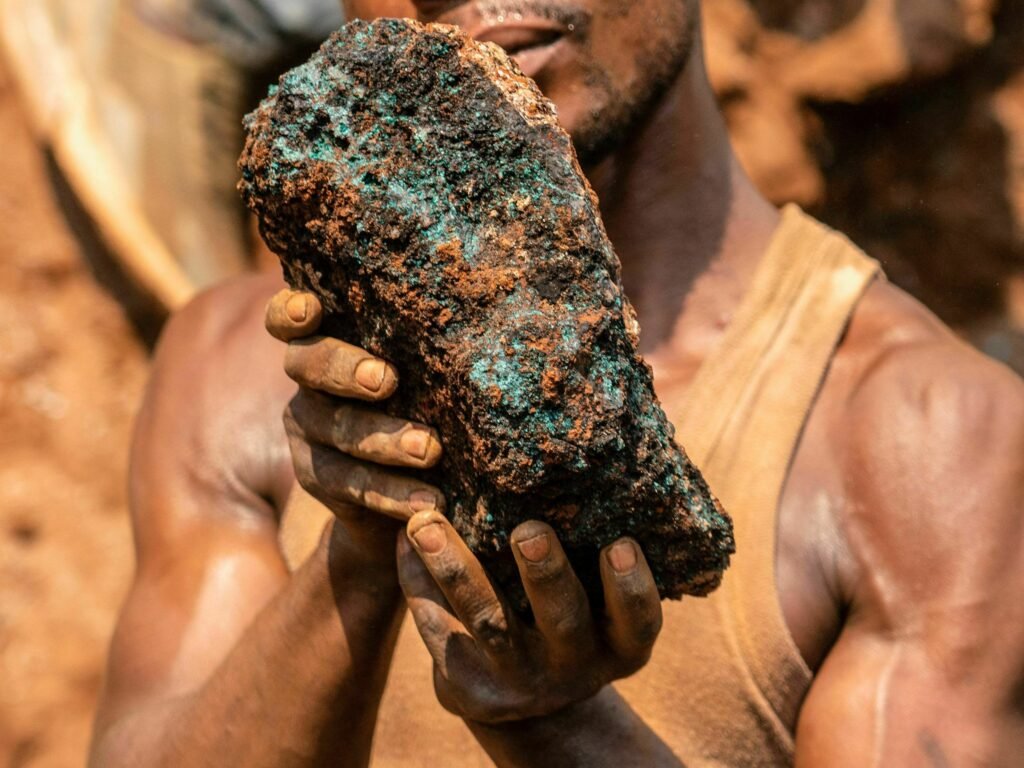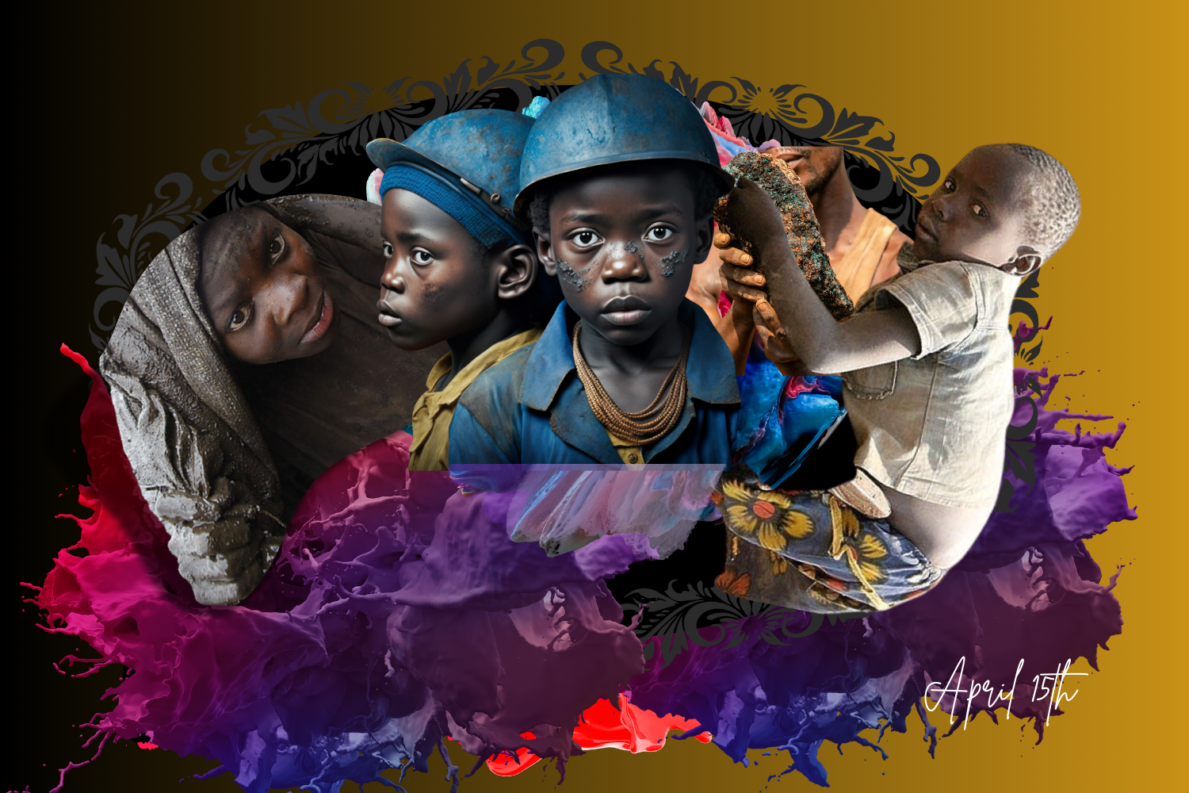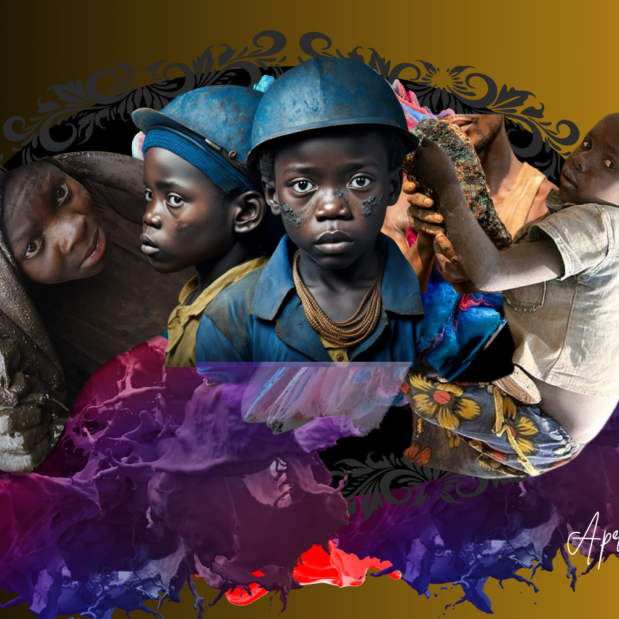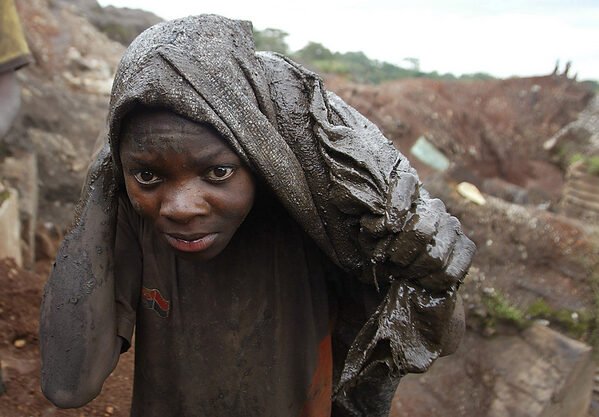In the heart of Africa, beneath the lush canopy of the Congo Basin, lies a dark secret powering our clean energy revolution. In the heart of Africa, beneath the lush canopy of the Congo Basin, lies a dark secret powering our clean energy revolution.

/
June 2024
★AFROLATELY

The Democratic Republic of Congo (DRC), home to over 70% of the world’s cobalt reserves, has become ground zero for a troubling paradox: the push for green technology is inadvertently fueling a form of modern-day slavery.
As the world races to adopt electric vehicles and renewable energy solutions, the demand for cobalt—a crucial component in lithium-ion batteries—has skyrocketed. But the human cost of this transition is staggering. In the cobalt-rich regions of the DRC, tens of thousands of workers, including children as young as seven, toil in conditions that harken back to a bygone era of exploitation.
“Visualize traversing some of these mining sites and turning back the clock several centuries,” says Siddharth Kara, author of “Cobalt Red” and a fellow at Harvard’s T.H. Chan School of Public Health. “People are working in inhumane, degrading conditions, using pickaxes, shovels, and rebar to dig in trenches, pits, and tunnels to gather cobalt and transport it up the formal supply chain.”
Children work in cobalt mines in the Democratic Republic of Congo (DRC) and the Katanga province of Congo due to the high income it provides for families. Children can earn up to $2.50 per day, which they often give to their mothers to pay for household needs and school fees. However, working in cobalt mines can be dangerous and expose children to a number of risks, including:
The irony is palpable. As consumers in the West proudly drive their electric vehicles, touting their environmental consciousness, the batteries powering these cars may be tainted with the blood and sweat of Congolese workers trapped in a cycle of poverty and exploitation.
Despite claims of ethical sourcing by major tech and automotive companies, the cobalt supply chain remains murky. Chinese traders and smelters, more concerned with price than ethics, often act as intermediaries, further obscuring the origins of the cobalt used in our devices.
The situation in the DRC is a stark reminder that the transition to green energy comes with its own set of ethical challenges. As Kara puts it, “We shouldn’t be transitioning to electric vehicles at the expense of the people and environment of one of the most downtrodden and impoverished regions on Earth.”
As consumers and global citizens, we must demand greater transparency and accountability in the cobalt supply chain.

The push for renewable energy should not come at the cost of human dignity and lives. Until then, the promise of a clean, green future remains tarnished by the reality of modern slavery in the cobalt mines of Congo.












